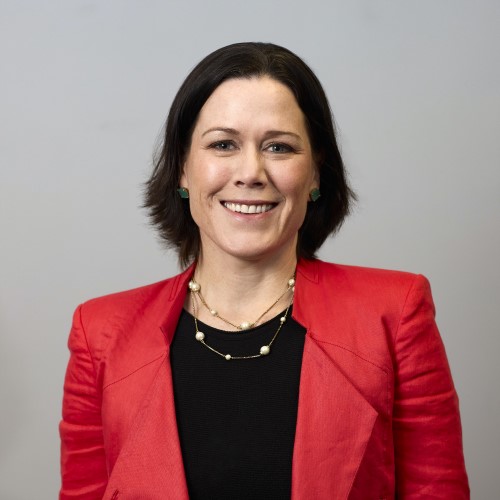From the Department
Alison Frame
Secretary, Department of Veterans’ Affairs

It is only through undertaking a substantial program of change and listening to the veteran community that DVA will be able to improve our services to address defence and veteran suicide, and related issues as highlighted by the Royal Commission.
In line with the Commission’s recommendations, DVA is evolving its engagement practices, with co-design increasingly a way of working in the Department. Hearing first-hand from veterans, families and ex-service organisations (ESOs) through workshops, forums and roundtables is the foundation of this work.
In recent months, we have been progressing the establishment of what will ultimately be veteran-designed entities: the veteran and family wellbeing agency and the ESO peak body. These initiatives are being developed in partnership with the veteran community to ensure they reflect the needs, experiences and aspirations of those they are intended to serve. Deputy Secretary Teena Blewitt is leading this effort and I encourage you to read her comments about the positive direction they are taking on the front page of this newspaper.
Another great example of our collaborative approach are 2 new online support programs from Open Arms: Shoulder to Shoulder, which provides peer-to-peer support for veterans, and families and carers; and Stronger We Stand, which delivers workshops for families and carers experiencing suicidal distress or those bereaved by suicide. These are accessible resources developed in partnership with lived-experience communities and available to anyone in the veteran community. (Please see pages 12–13 for more about these initiatives.)
I want to take this opportunity to acknowledge the significant contribution made by Gwen Cherne, Australia’s inaugural Veteran Family Advocate Commissioner. Gwen was appointed in 2020 to represent the perspectives of families in policy and decision-making across government – but in that time she has given so much more. As her statutory 5-year term draws to an end, I wish to sincerely thank Gwen on behalf of the Department for the passionate yet pragmatic way she has helped us to put families at the heart of everything we do. Gwen has penned a striking final reflection on her time as Commissioner and I commend her thoughts to you. (See page 21.) Gwen’s work will continue to benefit veteran families for years to come, and her legacy presents a solid foundation for her successor.
Gwen Cherne departs on a high note, having led DVA’s support for a Tragedy Assistance Program for Survivors Postvention Workshop inin Sydney last month. This 4-day workshop saw more than 30 bereaved family members of ADF veterans who died by suicide engage in healing, trauma-informed education, reflective remembrance and connection. By drawing on international expertise, and adapting it for the Australian context, this Australian-first initiative is a prime example of how we are exploring new ways toto support veteran families in deeply personal and practical ways.
We know that veteran wellbeing requires a holistic approach that recognises different veterans have different needs – there is no ‘one size fits all’ solution. DVA’s Veteran Wellbeing Grants program continues to fund innovative activities that enhance wellbeing in meaningful ways. In the last round, music and creativity workshops delivered by Gateway Care provided a non-verbal outlet for expressing difficult emotions and experiences. Meanwhile Inverloch RSL’s Bonsai tree educational workshop invited veterans and partners to try their hands at living art, helping to enhance focus and creative expression, and relieve stress.
This approach to supporting innovative programs also extends to clinical programs. DVA is currently finalising the processes to make psychedelic assisted psychotherapy an option for those with severe PTSD and Treatment Resistant Depression, under strict medical safety provisions. Our Chief Psychiatrist, Associate Professor Jon Lane, is actively looking into how we can better support other innovative approaches to mental health treatments.
On Anzac Day, as we marked 110 years since the Gallipoli landings, for the first time veterans and family members were part of DVA delivery teams on the ground in both France and Türkiye. The initiative has added a special new dimension to the overseas commemorations, and we are looking to expand it next year. Given their strong personal connections to military service, it is unsurprising that our AnzacAnzac volunteers found their involvement to be a powerful emotionalemotional experience. I encourage you to read their reflections on page 19.
On 25 June, hundreds of people gathered at the National Korean War Memorial in Canberra for a poignant National Commemorative Service to mark 75 years since Australians first served in the Korean War. It was a significant milestone that honoured both the veterans who served and those who never returned, and their family members. (You can read more on pages 26–27.)
This year also marks the 80th anniversary of the end of the Second World War. The Australian War Memorial and DVA are commemorating this with various activities, including a symposium and a special Last Post Ceremony on 15 August.
On 31 August, DVA will host a National Commemorative Service in Canberra to mark the 75th anniversary of Australian service in the Malayan Emergency, recognising Australians who served in that conflict. These are significant anniversaries, and we will cover them in more detail in the next edition of Vetaffairs.
Finally, I was honoured in May to travel to Papua New Guinea for the committal service of 2 aviators whose Beaufort A9-186 was listed as missing in action in the Second World War. (You can read their story on page 29.) The ceremony was very moving and importantly, the 2 aviators will be cared for in perpetuity by the Office of Australian War Graves in the beautiful Bomana War Cemetery, for which DVA is responsible.
Lest we forget.